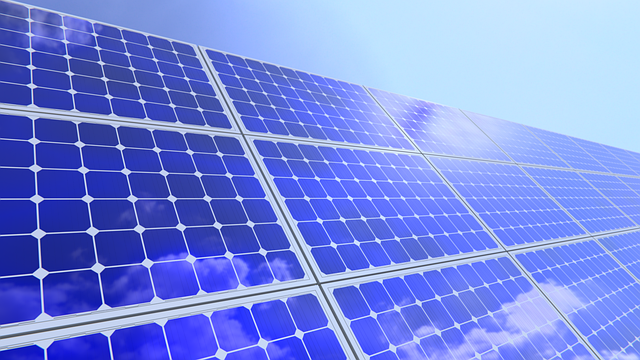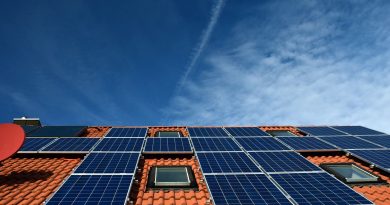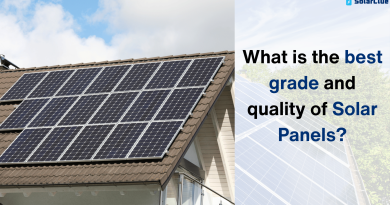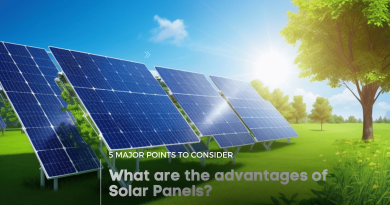What Are The Major Benefits Of Off Grid Solar Panels?
Off-grid solar panels have emerged as a sustainable and reliable source of energy, offering numerous benefits to households and businesses alike. With the advancement of renewable energy technology, solar panels have become more affordable, efficient, and accessible, enabling users to generate their own electricity and achieve self-sufficiency. This blog will explore the various advantages of off-grid solar panels, highlighting their environmental, financial, and practical benefits.
The following are the benefits of Off-Grid Solar Panels:
1. Energy Independence
One of the key advantages of off-grid solar panels is the opportunity to achieve energy independence. By generating your own electricity, you are no longer reliant on the grid and immune to power outages caused by weather events, accidents, or maintenance work. This self-sufficiency provides peace of mind, particularly in remote areas or regions with an unreliable power supply. Off-grid solar panels empower individuals and businesses to take control of their energy consumption and reduce their dependence on fossil fuels, thereby reducing their carbon footprint.
2. Cost Savings
In addition to the environmental benefits, off-grid solar panels offer significant financial advantages. While the initial installation cost may seem substantial, the long-term savings are remarkable. By generating electricity through solar panels, users drastically reduce or even eliminate their electricity bills. As the cost of fossil fuels continues to rise, the affordability of solar panels makes them an attractive alternative. Moreover, with government incentives and rebates, the payback period for solar panel investment can be considerably reduced. With proper maintenance, these panels can last for several decades, providing a reliable and sustainable source of energy while saving money in the long run.
3. Environmental Sustainability
Off-grid solar panels contribute to a greener and more sustainable future. Traditional electricity generation relies heavily on fossil fuels, which not only deplete natural resources but also emit harmful greenhouse gases into the atmosphere, accelerating climate change. Solar panels, on the other hand, harness the power of the sun, a clean and renewable energy source. By installing off-grid solar panels, individuals and businesses actively participate in reducing carbon emissions and minimizing their environmental impact. The adoption of solar energy significantly contributes to the global shift towards sustainable development and combating climate change.
4. Flexibility and Versatility
Off-grid solar panels offer great flexibility and versatility when compared to their grid-tied counterparts. With an on-grid system, excess electricity generated during peak hours is injected back into the grid, often for a small credit or feed-in tariff. However, off-grid systems allow users to store this excess energy in batteries, ensuring it is available for use at any time, including during non-sunny periods or at night. This feature allows for uninterrupted power supply and enables individuals living in remote locations or off-the-grid areas to access reliable electricity. Additionally, off-grid solar panels can be installed in various settings, such as rooftops, ground areas, or even on portable structures, making them suitable for a wide range of applications.
5. Durability and Low Maintenance
Off-grid solar panels are designed to withstand harsh weather conditions and require minimal maintenance. Typically, solar panels have no moving parts, making them less susceptible to wear and tear. Routine cleaning to remove dust and debris, as well as occasional inspections to ensure optimal performance, are usually sufficient. With proper maintenance, solar panels can last for 25-30 years or more, making them a reliable and durable investment. This longevity further enhances the financial benefits, as users can enjoy decades of free electricity once their system is installed.
Conclusion
Off-grid solar panels offer numerous benefits to both individuals and businesses. From energy independence and cost savings to environmental sustainability and flexibility, the advantages are compelling. As technology continues to advance and the cost of solar panels decreases, more and more people are embracing off-grid solar solutions. The combination of financial savings, reduced carbon footprint, and increased reliability make off-grid solar panels a smart choice for a greener and more sustainable future. By harnessing the power of the sun, individuals and businesses can take control of their energy consumption while contributing to a cleaner and healthier world.
Experience the freedom of clean energy with Off-Grid Solar Panels! Contact SolarClue® for expert advice and high-quality solar solutions. Embrace a sustainable and eco-friendly energy future.
Frequently Asked Questions
Off-grid solar panels provide energy independence by generating power without relying on the traditional grid.
By harnessing solar energy, these panels reduce dependence on fossil fuels, lowering carbon emissions.
Batteries store excess energy during sunny days, ensuring a continuous power supply during periods of low sunlight.
Check local regulations, as some regions offer incentives, tax credits, or rebates for adopting solar technology.
With proper maintenance, off-grid solar panels can last 25 years or more, and regular checks are recommended.
Yes, off-grid solar solutions are scalable and suitable for various applications, from homes to businesses.
Consult with solar experts to assess your energy requirements and recommend the appropriate panel capacity.
Solar installations can enhance property value, offering potential buyers energy-efficient and cost-saving benefits.
Depending on local regulations, you may have the opportunity to sell surplus energy back to the grid.
Absolutely. Off-grid solar panels are designed for locations without access to the traditional power grid.




